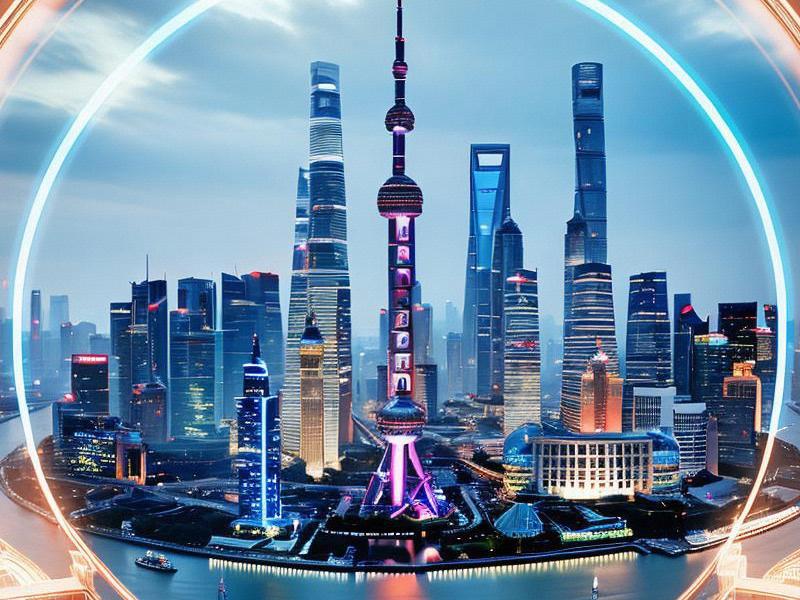
In the 21st century, Shanghai has emerged as a beacon of innovation and progress in China, and indeed across the globe. This vibrant metropolis, with its rich history and dynamic present, is not just a symbol of China's economic rise but also a testament to the city's ability to adapt and innovate in an ever-changing world.
The journey of Shanghai towards becoming a global innovation hub has been nothing short of remarkable. It began in the late 20th century when the Chinese government designated Shanghai as one of the four municipalities directly under the Central Government, granting it a unique status that facilitated rapid urbanization and economic development. This strategic move laid the foundation for Shanghai to become a leading city in China and beyond.
One of the key factors behind Shanghai's success is its commitment to technological innovation. The city has invested heavily in research and development, fostering a culture of innovation among its residents and businesses. This has led to the emergence of numerous high-tech industries, including information technology, biotechnology, and advanced manufacturing. Companies like Huawei, Tencent, and Alibaba have established their presence in Shanghai, contributing to the city's reputation as a tech-savvy metropolis.
The city's government has also played a pivotal role in promoting innovation. It has implemented various policies and initiatives to encourage entrepreneurship and the growth of startups. For instance, the establishment of the Zhangjiang Hi-Tech Park has provided a fertile ground for tech companies to thrive. This park, often referred to as "China's Silicon Valley," houses numerous innovative enterprises and research institutions, attracting talent and investment from around the world.
夜上海419论坛 In addition to technological advancements, Shanghai has also made significant strides in urban development. The city has undergone a remarkable transformation, with modern skyscrapers and infrastructure replacing the old and dilapidated buildings of the past. The Bund, once a symbol of colonial Shanghai, has been revitalized into a vibrant area filled with restaurants, shops, and cultural attractions. The Pudong district, on the other hand, has emerged as a symbol of modernity and prosperity, with the iconic Oriental Pearl Tower and the Shanghai Tower standing as testaments to the city's ambition.
The urban development of Shanghai is not just about physical changes but also about improving the quality of life for its residents. The city has invested in public transportation, healthcare, and education, ensuring that its citizens have access to world-class facilities and services. The expansion of the metro system has made commuting more convenient, while the construction of new hospitals and schools has improved access to essential services.
Shanghai's increasing influence on the global stage is another aspect of its journey to becoming a global innovation hub. The city has become a major center for international trade and finance, hosting numerous global events and conferences. The Shanghai Expo, held in 2010, was a prime example of the city's ability to attract global attention and showcase its achievements. This event not only boosted Shanghai's international profile but also provided a platform for the city to share its experiences and learn from other global cities.
The city's influence extends beyond trade and finance. Shanghai has also become a hub for cultural exchange and tourism. The city's rich history and diverse culture attract millions of visitors each year, who come to experience the unique blend of traditional and modern elements. The Shanghai Museum, the Yu Garden, and the Nanjing Road shopping street are just a few examples of the attractions that draw tourists to the city.
上海龙凤419手机 Moreover, Shanghai has been actively involved in global initiatives aimed at addressing pressing issues such as climate change and sustainable development. The city has set ambitious targets to reduce carbon emissions and promote green energy. The construction of the Zhangjiang Wind Power Plant and the promotion of electric vehicles are steps towards achieving these goals.
The journey of Shanghai towards becoming a global innovation hub is not without challenges. The city faces issues such as traffic congestion, air pollution, and housing shortages. However, the government and residents alike are committed to addressing these challenges and ensuring sustainable development.
One of the ways Shanghai is tackling traffic congestion is by promoting the use of public transportation. The expansion of the metro system and the introduction of bus rapid transit (BRT) have made commuting more convenient and environmentally friendly. Additionally, the city has implemented measures to encourage carpooling and the use of bicycles.
上海娱乐联盟 To combat air pollution, Shanghai has taken several initiatives. The city has set strict emission standards for vehicles and industries, and it has promoted the use of clean energy sources such as solar and wind power. The construction of green spaces and the implementation of tree-planting programs have also contributed to improving air quality.
Addressing housing shortages is another challenge that Shanghai is facing. The city has implemented various policies to increase the supply of affordable housing, including the construction of new residential complexes and the renovation of old buildings. The government has also introduced measures to regulate the real estate market and prevent speculative activities.
Despite these challenges, Shanghai's journey to becoming a global innovation hub continues to gain momentum. The city's commitment to technological innovation, urban development, and global influence is driving its progress. As Shanghai continues to evolve, it is poised to play an even more significant role on the world stage.
In conclusion, Shanghai's transformation into a global innovation hub is a story of resilience, adaptability, and ambition. The city's journey is a testament to the power of innovation and the importance of strategic planning and execution. As Shanghai continues to grow and develop, it will undoubtedly inspire other cities around the world to follow in its footsteps and embrace the opportunities and challenges of the 21st century.
